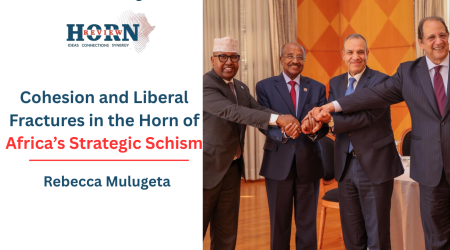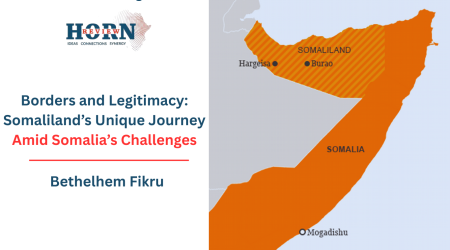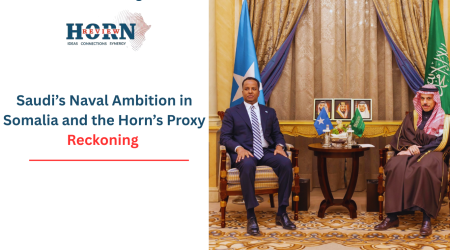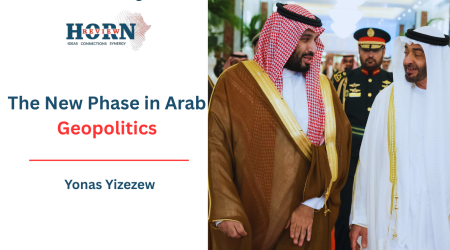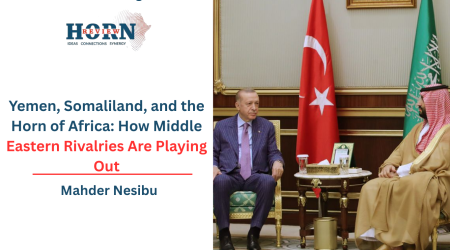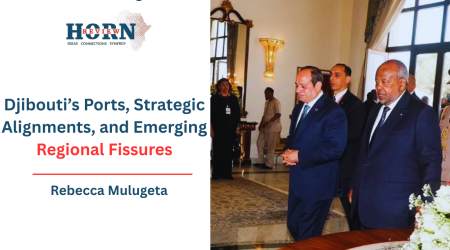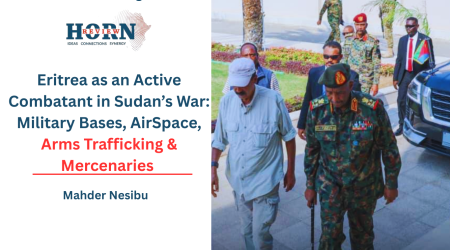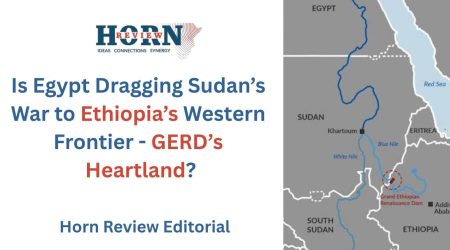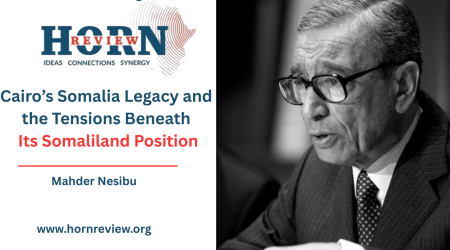
26
Sep
Eritrea And Multilateralism: Patterns Of Mistrust And Defiance
Eritrea’s relationship with international organizations has long been fraught, shaped by a profound suspicion of multilateral institutionalism and a preference for realpolitik over consensus-building. As the 80th General Assembly convenes in New York, the case of Eritrea, turbulent, defiant, and often at odds with international norms, demands reflection.
From its very inception in 1993, the seceded state’s interactions with the international community were strained. The Eritrean People’s Liberation Front (EPLF), which assumed leadership after secession, believed that Eritrea had been betrayed – denied its right to self-determination when the UN Security Council decided to restore Ethiopian sovereignty over Eritrea through federation after a lengthy period of Italian colonial rule. As the Crisis Group observed, the belief that Eritrea had been denied its rights and forced to “secure independence alone” became central to the state’s worldview in the early 1990s.
Although the United Nations supervised the referendum that legitimized Eritrea’s secession, and international enthusiasm initially accompanied its emergence, the new government, under the People’s Front for Democracy and Justice (PFDJ), did not adapt easily to multilateral norms. The authoritarian ideology masked as “self-reliance”, coupled with the enduring sense of betrayal, shaped Eritrea’s alarmist and often uncooperative posture. Development and rehabilitation initiatives were frequently rejected as “interventionist,” and Asmara characterized every cooperative gesture as interference in their internal affairs.
The regional context further complicated Eritrea’s trajectory. Military adventurism in the first decade of secession tarnished its international standing and entrenched hostility toward multilateral engagement. By the mid-1990s, Eritrea had tense relationships with all of its neighbours, often resorting to violence.
Relations with Sudan deteriorated as Eritrea accused Khartoum of mobilizing Islamist groups, while Sudan accused Asmara of backing southern rebels. By 1995, President Isaias Afewerki had adopted the use of proxies against the Sudanese government. That same year, tensions erupted with Yemen over the Hanish Islands, which Eritrea occupied by force before the Permanent Court of Arbitration largely awarded sovereignty to Yemen in 1998.
Eritrea’s largest war, however, was with Ethiopia. The 1998–2000 war ended with the Algiers Agreement and the Eritrea–Ethiopia Boundary Commission’s ruling. However, the United Nations was unable to fully implement the ruling for various reasons. For Asmara, this reinforced the perception that the international community, including institutions of global governance such as the UN, was not objective and efficient.
By 2009, relations with the United Nations had reached a nadir. At the height of the global war on terror, the Security Council imposed an arms embargo and sanctions on Eritrea after UN findings concluded that the country was supporting al-Shabab and refusing to withdraw troops from disputed Djiboutian territory. This marked the beginning of a long arc of isolation and reaffirmed Eritrea’s image as a militarist authoritarian state.
Eritrea’s difficulties with multilateralism extended beyond the UN. Its restrictive stance toward international donors and NGOs, shaped by the doctrine of “self-reliance”, limited the scope of aid and further distanced it from external partners. Relations with regional and continental organizations were equally fraught. In the early 1990s, Eritrea was welcomed to the regional body IGADD and participated in its restructuring into IGAD. The PFDJ, however, soon alienated the bloc through its militarism, its declared readiness to use proxies against Sudan, its war with Ethiopia, and its support for the Islamic Courts Union in Somalia. Unable to reconcile with Eritrea’s undiplomatic posture, IGAD saw Asmara withdraw in 2007.
Similarly, the African Union initially embraced Eritrea, sending observers to the 1993 referendum and granting membership upon Eritrea securing the “Mother State Permission for State Recognition” from Ethiopia. But Isaias’s frustration over the AU’s “inaction” following Ethiopia’s scepticism over the border ruling led it to recall its ambassador in 2003. Later, both the AU and IGAD supported UN sanctions against Eritrea for its support of al-Shabab, deepening Asmara’s estrangement. Tensions escalated in 2011 when a UN report found that Eritrean intelligence had conceived, planned, and directed a failed attack in Addis Ababa during an AU summit, an incident that further entrenched its pariah status.
Isolation abroad was mirrored by authoritarian consolidation at home. By the early 2000s, democratic aspirations had fully vanished, and Eritrea gained notoriety as one of the most repressive states in the world. In 2012, the UN Human Rights Council established a special rapporteur to investigate what it termed “widespread and systematic” abuses, later describing the country as a giant prison and the “North Korea of Africa”.
Sanctions and international pressure, however, failed to alter Asmara’s course; rather, they reinforced the PFDJ’s authoritarian grip over the country. The breakthrough came in 2018, when a change of government in Addis Ababa transformed the regional landscape. Ethiopia’s demonstrated political will to work on the implementation of the Boundary Commission’s ruling, ended two decades of stalemate, and reopened the door for Eritrea’s reintegration. The rapprochement, extending also to Somalia, revived optimism reminiscent of the early 1990s. With Ethiopia’s government’s unwavering support, the UN lifted sanctions, a move welcomed by both IGAD and the AU. Eritrea, once branded a rogue state, was seemingly restored to multilateral diplomatic platforms.
Yet the optimism was short-lived. By 2020, Eritrean forces were embroiled in the Tigray conflict between Ethiopia’s federal government and the Tigray Peoples Liberation Front (TPLF), accused by NGOs and human rights bodies of grave atrocities. A joint investigation by the Ethiopian Human Rights Commission and the UN High Commissioner for Human Rights implicated the Eritrean Defense Forces in the alleged widespread violations during the conflict. Nonetheless, unlike 2009, the UN and regional organizations, including the African Union, preferred to provide Asmara a chance to restrain itself, which was not given due consideration by the Eritrean regime. It rather re-adopted the Cold War era geopolitical chessboard between emerging and existing multipolar powers.
Today, this erosion of international consensus and the rise of multipolarism favours Eritrea. The UN Human Rights Council maintains its special rapporteur on Eritrea, an institution that Asmara regularly works to terminate. But otherwise, mechanisms of accountability have weakened. President Isaias Afewerki welcomes this decline. In an era when great powers themselves disregard international law and conflicts rage unchecked, Eritrea’s reliance on realpolitik appears vindicated. Since emerging from isolation, Asmara has made little substantive change to its foreign policy; instead, the international environment has shifted in its favour.
By bypassing regional, continental, and global frameworks, Eritrea now pursues its interests through militarism and pragmatic alignments with middle powers similarly disinclined to respect multilateral norms. In a world where international institutions falter, Asmara’s long-standing distrust of multilateralism no longer isolates it; rather, it aligns with the disorder of the age.
By Mahder Nesibu, Researcher, Horn Review

